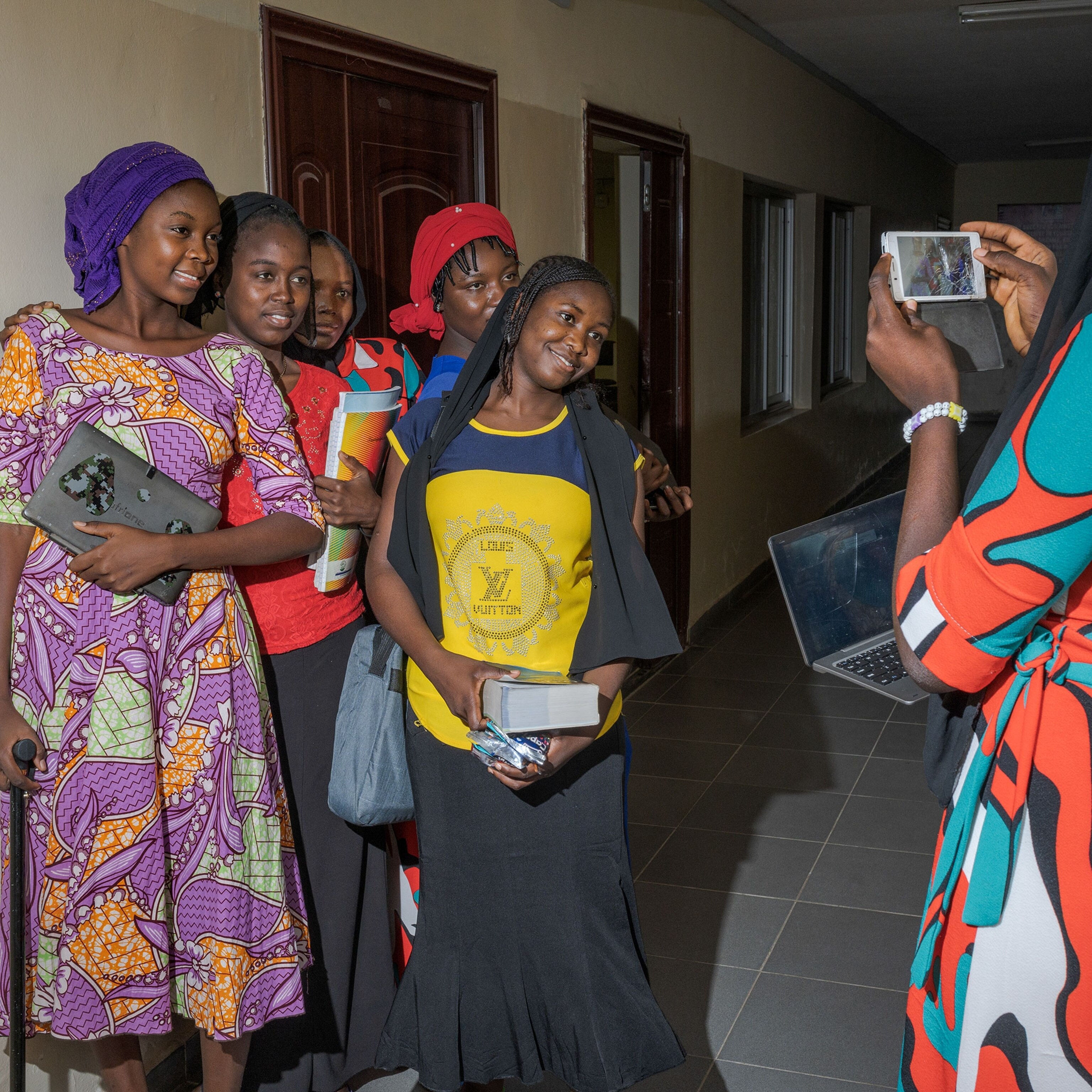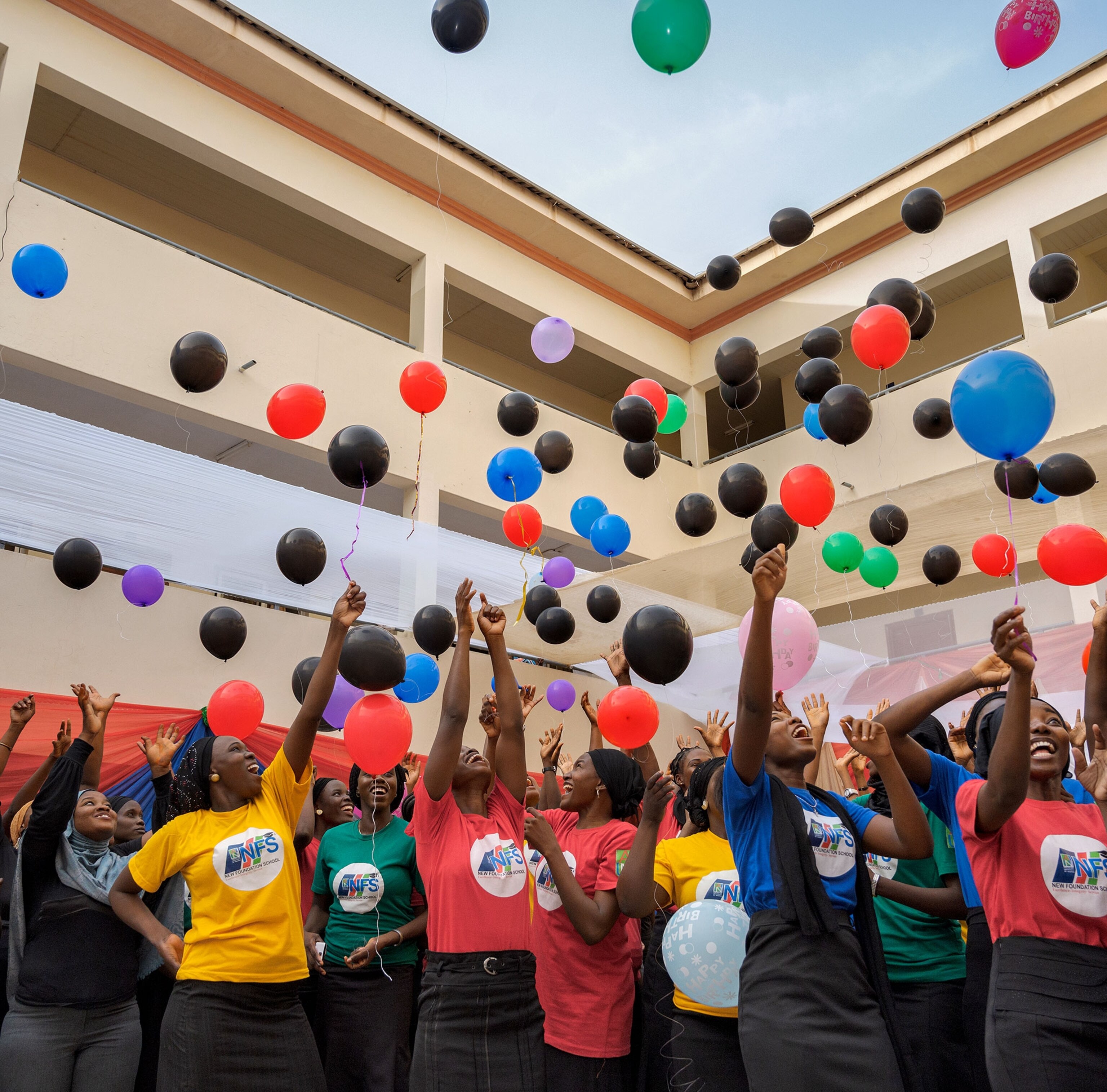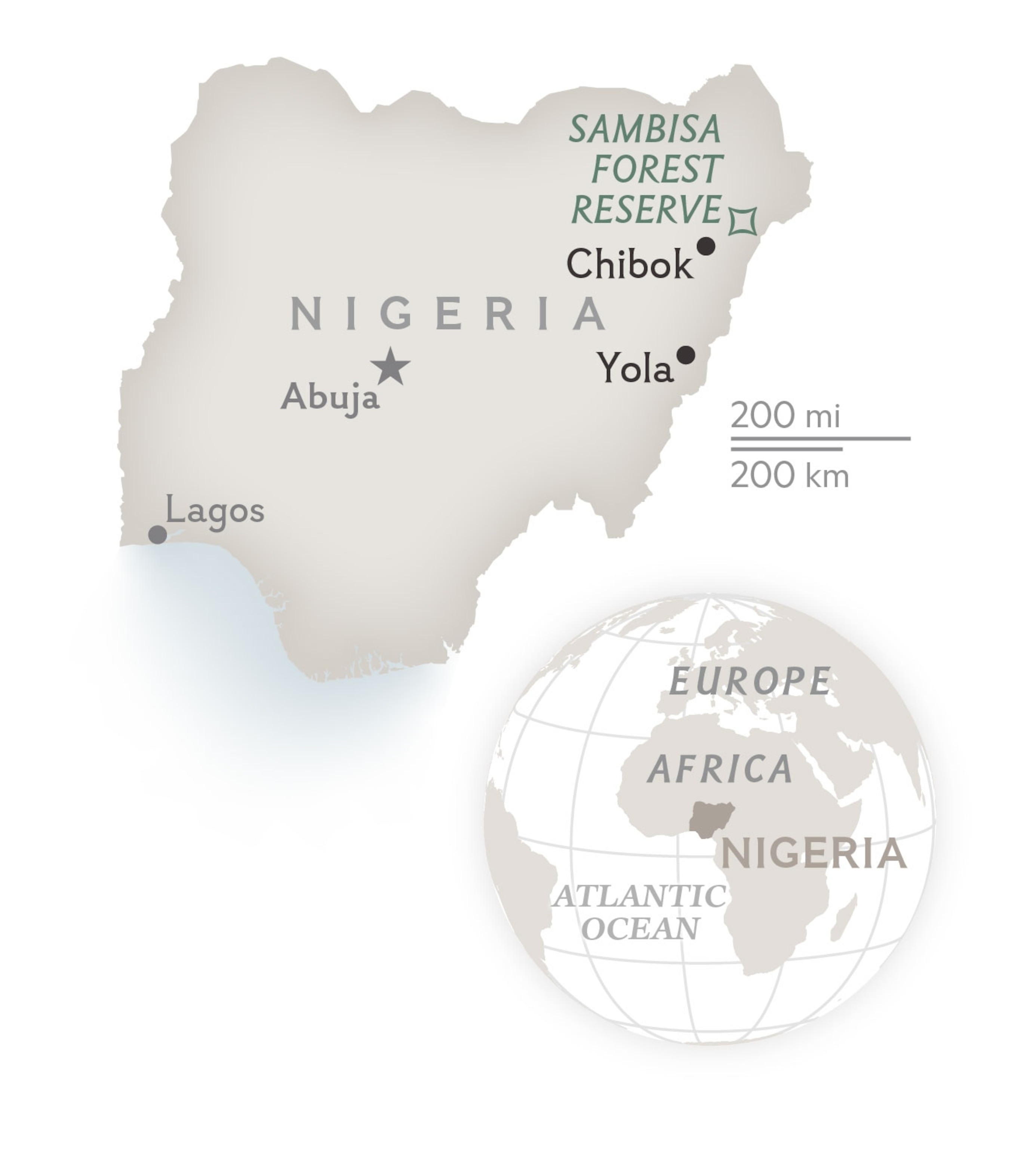
These schoolgirls survived Boko Haram. Now they face a pandemic.
In a remote part of Nigeria, the "Chibok girls" are facing both a terrorist insurgency and a fast-spreading virus.
Every May, there’s a party in northeastern Nigeria to celebrate a unique anniversary: the release of more than 100 young women from captivity. In 2014, 276 girls at a boarding school in a village called Chibok were kidnapped from their dorms by the militant group Boko Haram. They became known as the “Chibok girls.” Today, the survivors are supposed to be studying in a college prep program on the campus of the American University of Nigeria (AUN), in the hot, dusty northeastern city of Yola. Instead, they’re back home in their villages under lockdown for coronavirus.
Last year, photographer Benedicte Kurzen and writer Nina Strochlic joined the day-long “Release Day” celebration. In the courtyard of a building that serves as their dorm and classrooms, the students performed songs, skits, and readings. “Five years ago evil came to Chibok town with the intent of robbing these young ladies of their dream of an education,” said Reginald Braggs, an American who runs their program, in opening remarks. “Today they are relentlessly pursuing their dreams with a determined drive to excel and achieve.” (Read about the 276 schoolgirls and where they are now here.)
One year after Braggs’ upbeat speech, circumstances for the girls are again grim: Coronavirus cases are rising and so are attacks by Boko Haram militants.

In late March, AUN was given three days to shut down and evacuate all students and faculty. Many of the AUN students who were sent home are able to take classes and final exams online—but the students from Chibok live in remote villages with little connectivity. They were sent with homework and assignments to keep them on track, says AUN President Dawn Dekle.
When normal life resumes in Nigeria, Release Day will be celebrated again. “Our focus was packing up, arranging transport to send the young women home, plus the rest of our student body,” says Dekle. “It was a very busy three days but we got it all done.”
As of April 22, Nigeria reported nearly 800 confirmed cases of coronavirus and 25 deaths related to the virus. None are in the northeast where AUN is located. But the cases are steadily rising and country’s health system is ill equipped for large-scale testing and treatment. The economy teeters on the edge: Under lockdown, the 80 percent of Nigerians who work in the informal sector are being driven deeper into poverty.
“Should the virus reach the northeast there would be numerous challenges to responding,” says Gillian Walker, the emergency manager for UNICEF in Borno state, the epicenter of a decade-long insurgency. Among these challenges Walker cites is the presence of Boko Haram militants, whose attacks have become increasingly brazen as the country focuses on COVID-19. In late March, nearly 50 soldiers were killed in a Boko Haram ambush in the state of Yobe—not far from where the students from Chibok are now living.
With the military stretched thin enforcing the lockdown, Boko Haram seems to be seizing on the uncertainty. In a recent video, the terror group’s leader declared the virus to be God’s punishment for sinners. In April, multiple attacks have been reported along roads that health and humanitarian workers use to transport life-saving supplies and treatment. The dangers posed by the armed militants will make “referrals from the field to the identified treatment facility difficult,” says Walker.
More than 2.5 million internally displaced people are in northeastern Nigeria, many of them living in heavily congested camps. Social distancing is particularly difficult, if not impossible.
For the kidnapping survivors still widely known as the Chibok girls, this pandemic is just another obstacle keeping them out of school.

Six years ago, on the night of the Boko Haram attack, a student named Mary Katambi escaped by leaping off a truck and running through the forest back to her village. She quickly realized that home was no safer. “Boko Haram has burned down my parents’ house three times,” she said last year. When she arrived at AUN a few months after the attack, she excelled and gained admission to the main university. This January she landed in Rome to begin a study-abroad program for which she’d been chosen. It was her first time out of Nigeria.
In early March, Italy was put under national quarantine. From her dorm room in Rome, Katambi continues to take online courses. But other plans, such as cooking classes and spring break travel, have been canceled. “It is very hard to stay indoors,” she writes on WhatsApp. “I was [meant] to have a great time but see what happened.”





